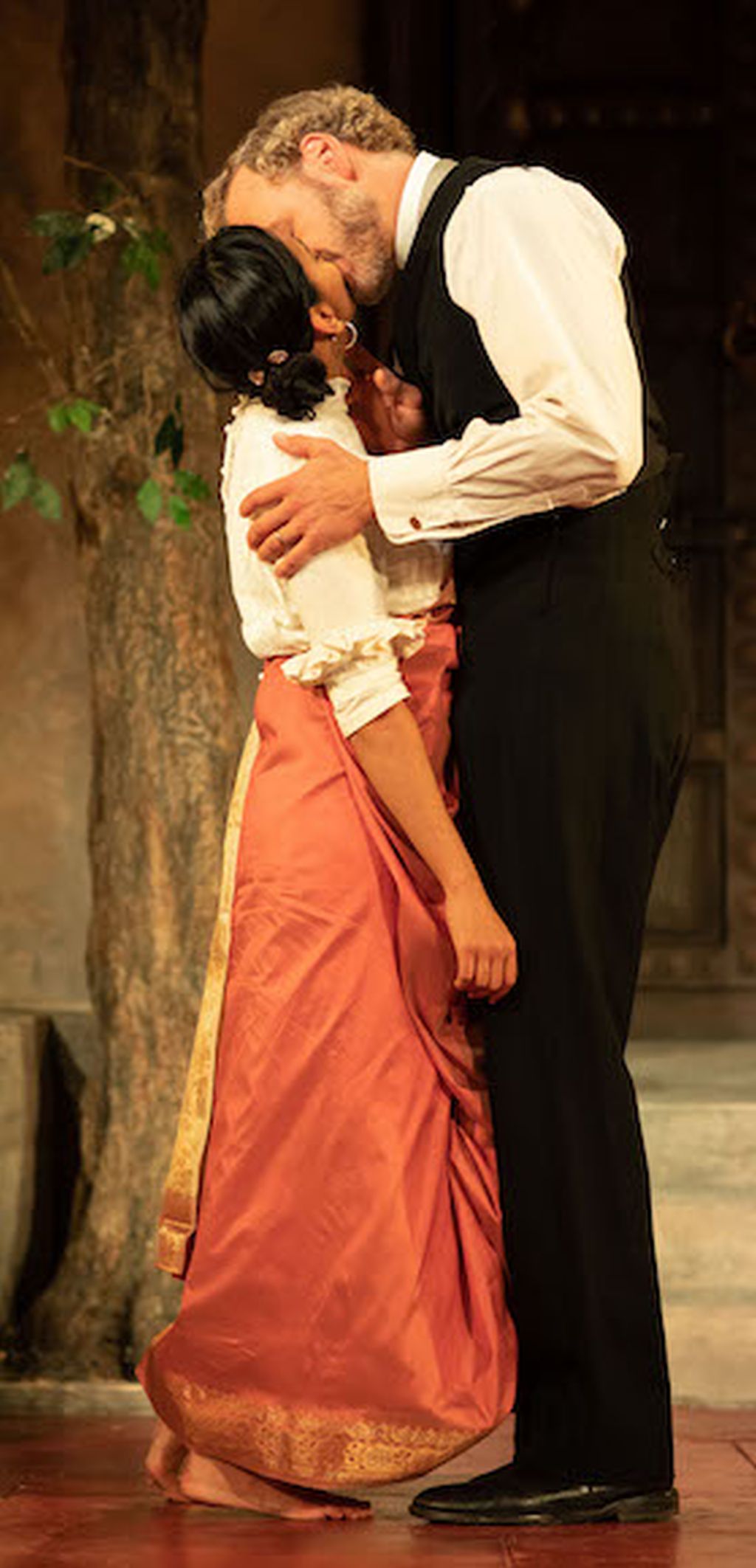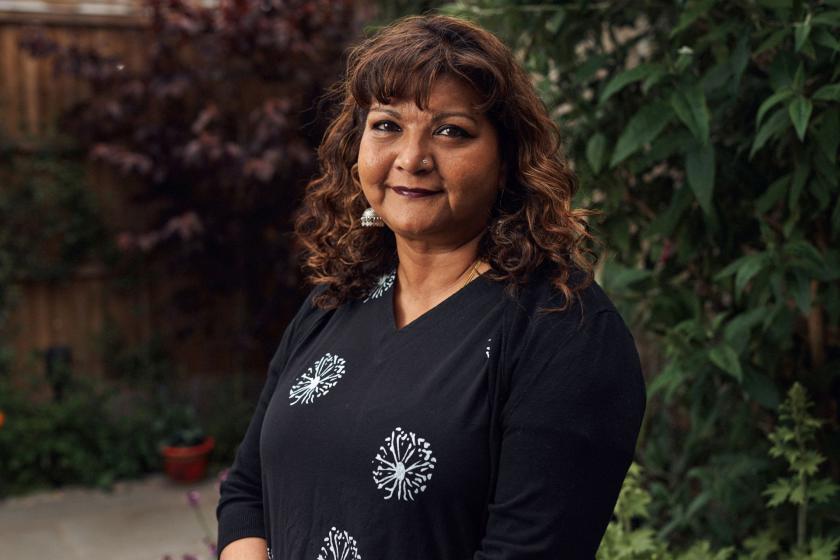On the first day of rehearsals for Out West at the Lyric Hammersmith in May, myself and fellow playwrights Roy Williams and Simon Stephens stood, masked up and lateral flow tested for Covid, and listened as the Lyric Hammersmith's artistic director Rachel O’Riordan welcomed us at the traditional theatrical “meet and greet".
As I looked around the room at the producers, stage managers, sound, lighting, costume and set designers, and the communication and theatre staff, I was struck by the enormity of the moment. I’d missed this so much - for over a year! Rachel talked about how important it was that we were all back making theatre, given the length of time during which many of us thought we’d never find ourselves again in a rehearsal room.
I’m not a gushy type, but I must admit that this brought a lump to my throat. We then sat in a circle, and the three actors [Esh Alladi, Tom Mothersdale, Ayesha Antoine] read each monologue in turn. This was a first for me – to sit in a rehearsal room and hear another writers’ plays at the initial read-through, all of us with the same look of delight and exquisite pain as we heard our words out loud for the first time. That moment is always special, but this was extraordinarily so.
 People ask me all the time "what did you do during lockdown?" I did what I always do and have done for 25 years: I wrote. Luckily, I was under commission, so I had plenty of work to get on with – adaptations, a couple of new plays, film treatments, screenplays, even a short story. I did some teaching on Zoom with young playwrights and I heard that two of my plays, A Doll’s House (2019 production pictured right, photo c. Helen Maybanks) and The Empress, were now on the GCSE curriculum.
People ask me all the time "what did you do during lockdown?" I did what I always do and have done for 25 years: I wrote. Luckily, I was under commission, so I had plenty of work to get on with – adaptations, a couple of new plays, film treatments, screenplays, even a short story. I did some teaching on Zoom with young playwrights and I heard that two of my plays, A Doll’s House (2019 production pictured right, photo c. Helen Maybanks) and The Empress, were now on the GCSE curriculum.
At first, lockdown was hard: the fear and anxiety of Covid and the mounting deaths gave me sleepless nights. A dear uncle died quite early in the pandemic and I couldn’t go to his funeral; a close friend almost lost her life to the virus; and a longtime colleague suffering from extreme isolation tragically committed suicide – as a result of which, the fear was real and close. But I count myself as lucky – a roof over my head, a lovely partner and a garden, children grown up and independent, and so I gave myself a good talking to and hunkered down and wrote. I kept in constant touch with my kids and best friends on the phone, went for long walks with my partner or local friends and, like many, discovered nearby woods and parks we never knew existed.
But the anxiety I felt for theatre and my colleagues continued throughout. How were they making ends meet? When would this end? A few of my friends are artistic directors, and I would hear the panic in their voices and their determination to try and hold onto staff, to stem the tide of redundancies and their distress when they couldn’t. I watched the news and raged against the government’s mishandling of the pandemic.
Writing for the stage is a strange occupation when theatres are locked and the auditorium is silent. The voices of my characters, plots and intrigues lay flat, silenced, and I couldn’t rouse them into action. Making theatre is collaborative. Scripts are discussed, workshops help breathe life into words and everyone has fun trying to make the play work for a live audience. We playwrights are opinionated old sods at the best of times, and being in a situation where I felt my voice was muted was a difficult one.
There were times, especially in January and February, when I despaired. Collaborating on the Royal Court’s Living Newspaper came at a really pivotal moment and gave me hope that there was still a hunger for new writing: as Vicky Featherstone kept saying, we would be back soon. My 15-minute play Mirror on the Moor for the Court channeled all my disquiet about the Tory Asians in the Cabinet : Rishi Sunak and Priti Patel vying with each other as to who would be the first brown Prime Minister of the UK, aided by a magic mirror and the ghost of Margaret Thatcher. We had such fun making it, complete with a Bollywood-dancing Sunak.
And now that we are back, tentatively given the threat of the new variant, I am cautiously hopeful. I can see that people are hungry to return to the theatre to see plays, and hope that theatre gate keepers will be more diverse in their programming.
The pandemic has affected everyone and with George Floyd’s murder last year, I feel it has shifted sensibilities a little. I heartily welcome the explosion of black talent in theatre, film and television – voices and stories that have been too long suppressed, stereotyped and ignored. I want to see more plays featuring women at the centre, less monocultural plays and certainly more plays written and directed by South Asians. There is a lot of talk about de-colonising the curriculum, but we also need to de-colonise our theatres to make British theatre relevant. As my old friend, the late Stephen Jeffreys, used to say: "If you want to write for theatre, make sure your play says something about the world in which we’re living."















Add comment